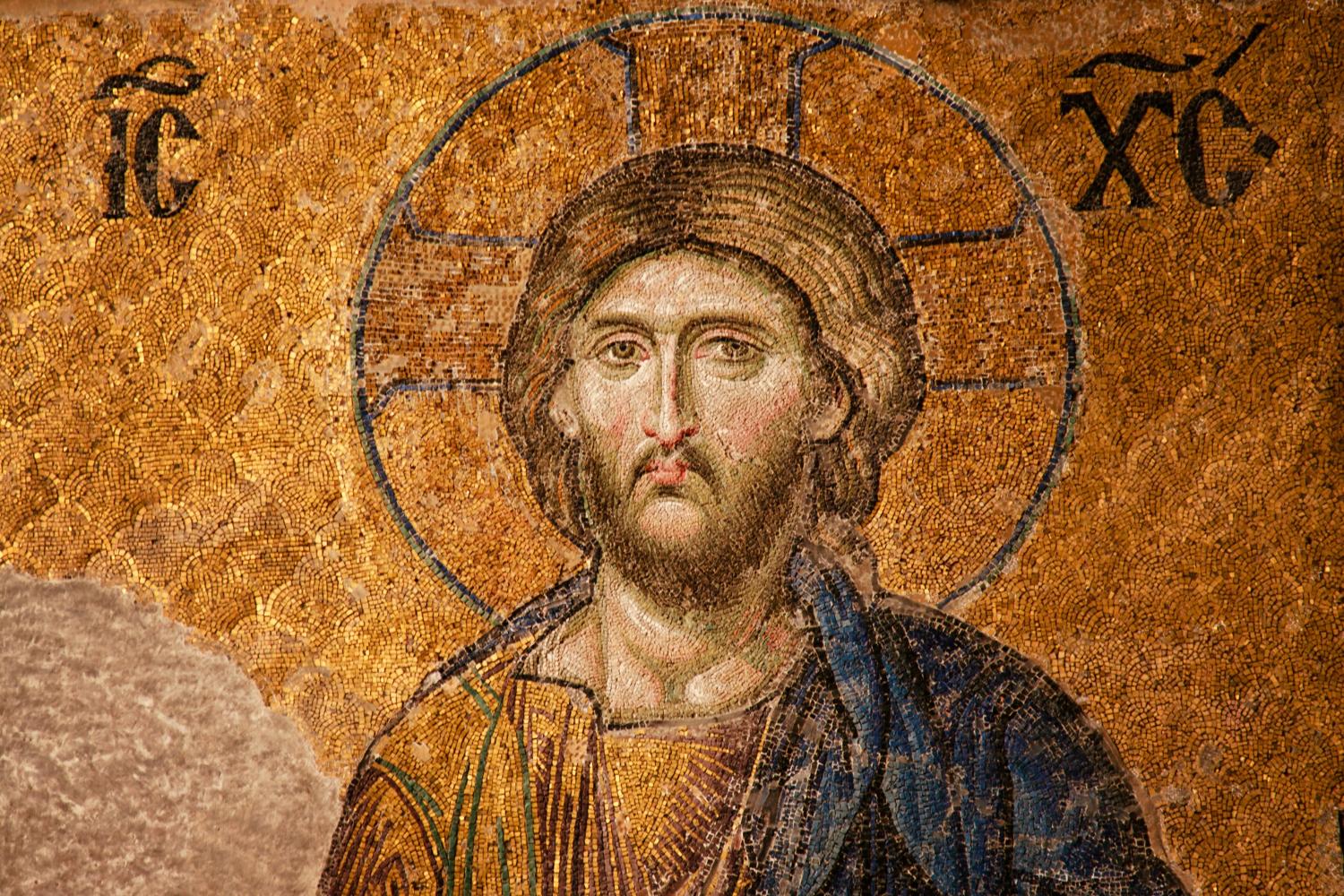
Nomen mihi est: ____________
This phrase is typically at the top of a printed Latin quiz and instructs students to sign their names and begin. It is no surprise that Latin students prefer to Latinize their own names during class, so Mark becomes Marcus and Lucy becomes Lucia, for example. They are familiar with the sound of Roman names, but I doubt many have thought much about those of the authors we read. In fact, many students don't seem to know the full names of these great figures of the past.
If I ask my class, “What was the last name of Marcus Aurelius?” one or two, perhaps, will know it is Antoninus. The same can be said for Cicero who is referenced by his last name rather than either of his other two, which are Marcus and Tullius. For Vergil, we use the middle name and not Publius (his first name) or Maro (his last name). Imagine if instead of Vergil's Aeneid we called it “Maro's Aeneid”!
The fact is that most Roman men had three names. Of these three, it is the middle name, or nomen, that signifies the tribe or clan he belonged to. In the case of Publius Vergilius Maro, for instance, this poet belonged to a tribe by which we now and forever call him – the Vergilius tribe. Cicero, on the other hand, stems from the Tullius tribe. Tribes were comprised of various families, and it is the third name, the cognomen, which signifies the specific familia within the larger clan. So Publius Vergilius belonged to the Maro family whereas Marcus Tullius was born into the family of Ciceros.
The first name (praenomen), Publius or Marcus, for example, indicated the specific individual within the familia, and this was often abbreviated:
P. Vergilius Maro
M. Tullius Cicero
Daughters did not receive unique first names but were each called by the feminized form of the tribal name – hence, Vergilia or Tullia. When another daughter was born, she, too, would receive the tribal name. To distinguish between the two Tullias the family would call the first maior (the elder) and the next one minor (the younger). If more girls were born into the family, they were referred to by ordinal numbers, Tertia, Quarta, Quinta.
By understanding the function of Roman names, it is pretty straightforward to distinguish a few basic facts about the bearer. Consider the name:
L. Sergius Catilina
We can tell that this man's friends and relatives would have called him Lucius and that he belonged to the familia Catilina which made up part of the Sergius tribe or gens Sergia. If he had a son, he might name him Quintus, and his name would be Q. Sergius Catilina. If he had a daughter, she would simply be called, Sergia.
What is most intriguing, to me at least, is when the paterfamilias (father of a family) took possession of someone from another tribe through adoption, or sometimes a freed slave or foreigner who had no tribe at all. When this happened, the new member would receive the termination -ianus at the end of the tribal name. For example:
Q. Sergius Catilina = born into the tribe
Q. Sergianus Catilina = brought into the tribe
In ancient Rome, no one needed to clarify, “I'm adopted,” since that was already conveyed by their name. And yet, an -ianus person was fully a member of his adoptive family and their tribe. It hardly needs to be said that one could not change his name in an attempt to gain status or prestige. No one could simply call himself a Julius or even a Julianus unless of course he had been adopted, as in the latter case.
These middle names were the most important because they were the most ancient and signified the gens, what I have been calling the “tribe” or “clan.” Tribal names were initially markers of specific nations or even races. In fact, some of them claimed origins stemming from before the Trojan War (twelfth or thirteenth century B.C.) when each gens would have been considered (and thought of themselves as) a nation unto themselves.
The Roman historian, C. Suetonius Tranquillus, reports that in the first century A.D., Ti. Claudius Caesar Augustus Germanicus (Roman emperors had additional titles added to their official names), better known to us as Emperor Claudius, expelled a group of Jews from Rome. There had been a disturbance in the Jewish quarter of the City due to the followers of a certain Chrestus (Suetonius' spelling of the name Christus). These were members of the primitive Roman church, some of whom, after Claudius' edict of expulsion, fled to Corinth and there they met the Apostle Paul (Acts 18:1-2).
It is important to remember that the Church was not at this time distinguished by the Romans as something distinct from Judaism. The followers of “Chrestus” were, to Claudius and the rest, no more than a faction of Jews. Perhaps the same held true in the minds of the outcasts themselves; namely, that they thought themselves to be part of “The Way,” that is, the fulfillment of Israelite religion. But at the same time, they were likely already aware of the title by which they would forever be referred to, one that we are told originated in Antioch (Acts 11:26)––i.e., Christiani (Latin for Christians).
Just how the Latin function -ianus came to influence and even create the Greek term (Χριστιανος for Christianus) remains obscure. But given what was said before concerning Latin tribal names, the specific origins matter less than what this new word would have conveyed to those who understood it. A Christianus was an adopted member of a new tribe, the Christus tribe, the tribe of Christ. He was set apart from the world and belonged to a new nation.
In the few decades that elapsed between Claudius' expulsion of the Christian Jews from Rome and the end of the first century, the members of the Church were increasingly referred to throughout the empire as Christiani. It is worth noting that the word is only used three times in the New Testament. For it was later, and most acutely in the context of martyrdom, that the term took full affect with the entire force of its meaning.
To illustrate, I point to the band of twelve African Christians who were executed by the proconsul P. Vigellius Saturninus in Carthage on July 17, 180 A.D. They are known to us as the Scillitan Martyrs, and they stand as a pristine example of the obligation to always and everywhere bear witness to the truth – an obligation that is forever placed on members of the Christianus tribe. Saturninus warned these men and women to prove they were loyal members of the Roman Empire by swearing an oath to the health of the pagan emperor. But this action would, as they understood it, also affirm that they were not truly members of the Heavenly Kingdom. It would be a denial of their existence as -ianus members of the new tribe into which they had been adopted.
At this, one of them answered: “The empire of this world I know not; but rather I serve that God, whom no man hath seen, nor with these eyes can see.” The proconsul, Saturninus, turned to the other members of the group and commanded, “Cease to be of this persuasion!” One of the women spoke up and said, “I am a Christian (Christiana sum).” Another said, “Which thing I am [a Christian], that I wish to be.”
To the Roman functionary, these people likely appeared to be insane. He could not understand their claims, especially in the face of their own impending death. This new nation, this new tribe, new citizenship based on someone named “Christus,” all of it must have seemed like madness. So he asked once more if they would persist in claiming to be Christians. “Christianus sum,“” said the first and the rest did the same. Then, the pagans announced the death sentence and the Christians said, “Thanks be to God.” One after the other, they were cut down by the sword, spilling their blood on the hot sand with the hope of immortality and heavenly glory before them as members in the tribe of Christ.
What is most telling in this and other similar accounts is the reality that these witnesses experienced as truly belonging to a new nation. Embedded within the name “Christian” was, for these Latin speakers, a significance that is lost on us today. To claim, “Christianus sum” indicated more than that you believed, it meant that you belonged. You bore witness to a fact rather than a theory or “persuasion” as Saturninus called it. You were an adopted member into a new kingdom that was not of this world. You were an -ianus member of the heavenly family.
The testimony of another African martyr is particularly relevant here. She was a young mother by the name of Perpetua, who similarly experienced the reality of belonging to the tribe of Christ and paid for it with her own life. She lived and died just a few decades after the Scillitan twelve and in the same city of Carthage. Before her trial, Perpetua's father came to reverse her decision of refusing to sacrifice on behalf of the Roman Emperor, an act that carried the death penalty. Her father's tribal name was Vibius and it is clear that she, Perpetua, in claiming to be a Christian, had exchanged her given name Vibia for her adopted name Christiana. During the conversation, she asked him: “Father, do you see that vessel lying there? Is it a little pot or something else?” The father answered, “It is a little pot.” She then asked if he could call it by any name other than what it actually was. His answer, “No.” She responded, “In the same way, I cannot call myself anything other than what I am––a Christian (Christiana sum).” She proved by her words and her subsequent martyrdom that she no longer belonged to the gens Vibia but to the gens Christiana.
These examples disclose, and many more could be added, that there is much more to the name Christian than we moderns typically assume. We see it as merely the name of one religious option out of many. But the fact remains that we who bear the name are called to manifest that we are truly adopted sons and daughters into a new gens, a new nation. These martyrs could not deny their tribal name, and their witness to it unto death was something astounding to their pagan interlocuters. Consider where the Catechism, in the context of martyrdom, states: “Witness is an act of justice that establishes the truth or makes it known (2472).” The act of saying, “Christianus/a sum” with a sword at the neck was the act of justice that both established and made known the truth.
The future belonged with the adopted sons and daughters who cared nothing for the prestige, wealth and earthly power that is bestowed on certain figures simply by being born a Herod, a Julius, a Medici, or a Rockefeller. But there is more to it, if we consider Jesus' words to Nicodemus about being born again (John 3:1-21). Unlike the Roman system, Christians believed they could actually be born into the family of Christ. For some, this birth occurred at the moment of earthly death, as we see in the testimony of Ignatius of Antioch who, just before his martyrdom, said:
Neither the pleasures of the world nor the kingdoms of this age will be of any use to me.
It is better for me to die [in order to unite myself] to Christ Jesus than to reign over the ends of the earth. I seek him who died for us; I desire him who rose for us. My birth is approaching. . .
Here we have an adopted son who would prove his worthiness to be born at the price of his own blood. Let us leave it to the theologians to sort out the soteriology surrounding “adoption" and "born again.”I prefer to dwell on the recorded facts of the arena over the theories of the scholastics. And for each of us, the testimonies noted above are enough. Although they are extreme, they are extremely good. These witnesses knew what the name Christian truly meant.


